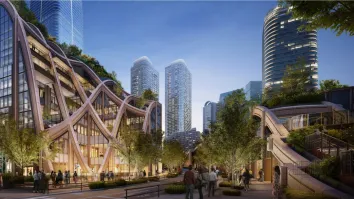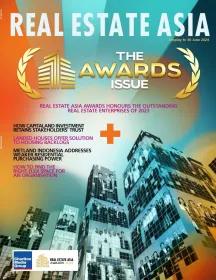PropTech reduces concrete, steel waste in construction
Innovations drive efficiency and sustainability in real estate development.
The role of property technology (PropTech) has become crucial in reducing construction waste and carbon emissions in the real estate sector by integrating advanced technologies that enhance efficiency, according to Dennis Lee, Partner at RSM Singapore.
"Construction waste accounts for almost 50% of total global CO2 emissions, with concrete and steel being the two largest contributors," Lee explained. The significant environmental impact of these materials has driven the demand for innovative solutions to optimise resource use and reduce emissions.
PropTech, particularly through Building Information Modelling (BIM) software, plays a pivotal role in the design and construction phases. This technology allows for better planning, monitoring, and estimation of material needs, significantly lowering the risk of overruns and excess waste.
"The use of BIM ensures that materials like concrete and steel are used more efficiently, which not only cuts down on waste but also substantially lowers carbon emissions per tonne," Lee added.
Another PropTech application discussed by Lee is the concept of digital twins. This technology involves creating a digital replica of a building to simulate and optimise building operations and maintenance.
"Digital twins allow for accurate estimations of utilities consumption and the effective management of building systems, leading to further reductions in waste and improved operational efficiencies," Lee stated.
Beyond construction, PropTech also contributes to the sustainability of real estate projects through advanced manufacturing techniques like 3D printing. "3D printing in real estate isn't just about creating smaller objects; it's increasingly used in building design and construction," Lee said.
Moreover, the integration of the Internet of Things (IoT) within PropTech tools like 3D printed elements allows for real-time monitoring and control of resource use within buildings, pushing the envelope on sustainable building practices.
Lee also touched on how PropTech transforms traditional real estate practices, especially in the post-pandemic era, by facilitating faster transactions and enhancing buyer and seller experiences through digital platforms. "The infusion of technology in real estate transactions has not only streamlined administrative processes but also improved the decision-making process for buyers and sellers alike," he explained.


















 Advertise
Advertise


